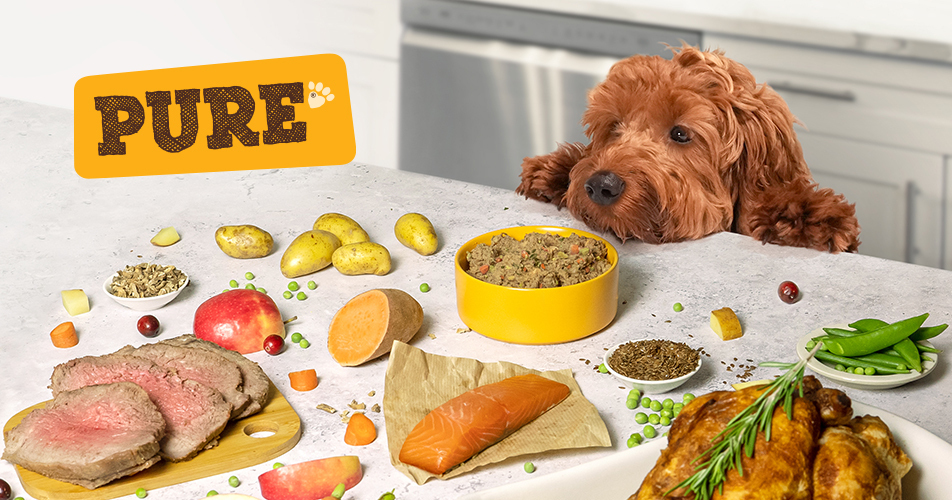
The Benefits of Commercially Prepared Pet Foods
Prepared pet foods are a very popular and appropriate way to feed dogs and cats. Pet owners recognize and celebrate that pets are individuals and owners generally decide on what foods meet their particular circumstances. Owners consider the likes and dislikes of the pet and their own view regarding convenience, cost and variety of food provided to the pets. There is no particular single ‘right’ way to feed pets, as long as the nutritional needs of the dog or cat are being met.
Prepared pet foods from reputable pet food manufacturers come with reassurance of nutritional adequacy, quality and safety. There is a wide variety of recipes, varieties and textures to choose from, and they are convenient to use. Selecting nutritionally complete foods means that these foods have been developed to provide a balanced diet. These foods provide all of the animals’ requirements for energy, protein, fat, vitamins and minerals.
Pet owners can mix and match wet and dry foods, in accordance with the feeding guidelines found on the packaging, which are nutritionally complete and balanced to provide exactly the preferred mix for pet and owner, comfortable in the knowledge that they are providing complete nutrition for their pet.
Why are prepared pet foods so popular?
• Excellent nutrition
• Convenience
• Cost effective
• Safety
• Consistency
• Variety
• Pet satisfaction
• Sustainability
What do prepared pet foods deliver?
• They provide the correct amount, balance and availability of nutrients to sustain physical and mental health and activity.
• Sufficiently concentrated to allow the animal to meet its nutritional requirements by consuming the food offered.
• Tastiness (palatability) to ensure the food is eagerly consumed since an uneaten meal has no nutritional value. Palatability of the food is important as feeding time should be a rewarding experience for both the owner and the pet which reinforces the bond between a dog or cat and its owner.
• By utilizing quality nutritious meat and plant-based ingredients that originate from the production of human foods, prepared pet foods to provide a sustainable source of balanced nutrition in an environmentally sustainable and responsible manner.
A balanced diet
Dogs and cats need a balanced diet which contains just the right amount of proteins, fats, carbohydrates and essential vitamins and minerals to ensure that they stay in peak condition. These nutrients must be present, not only in the correct amounts, but also in some cases in the correct proportion to each other to provide a nutritionally complete and balanced diet. Pet’s requirements for these nutrients varies throughout life and are determined by factors such as age, whether the pet is active or sedentary, state of the pet’s health, reproduction, and environmental conditions. In meeting the particular needs of an individual animal, the owner must provide the required amount and correct balance of energy and essential nutrients in a quantity of food the pet will consume. Since animals eat to meet their energy needs, all essential nutrients should be present in the correct amounts relative to the energy (joules or calories) in a complete and balanced food. Prepared pet foods that are complete and balanced will have a statement on their label advising this fact.
Some pet owners may choose to prepare at least some of their pet’s meals themselves. However, as dogs and cats have different nutritional needs than do people, home prepared pet feeding requires a thorough understanding of the specific nutritional needs of the cat or dog, the nutritive value of different food types, dietary interactions and methods of preparation and storage which may affect the availability of individual nutrients.
For example, if the calcium level in pet food is too high or too low, it may adversely affect the health of the pet. Similarly, mismanaged fat intake can result in health issues such as pancreatic problems.
In fact, a 2013 study conducted by a team of researchers at the University of California, Davis, School of Veterinary Medicine found that a vast majority of homemade recipes are lacking in nutrition. Researchers analysed 200 different recipes for home-prepared dog foods, using recipes from different websites, veterinary textbooks and pet care books. The results showed that 95 percent of the recipes were deficient in at least one essential nutrient and 84 percent were lacking in multiple required nutrients.
Additionally, improperly formulated or under-cooked pet food could become contaminated with bacteria such as E. coli or Salmonella which can make your pet sick. Pet food manufacturers have safeguards in place throughout the manufacturing process to prevent such problems.
In summary, commercially prepared pet foods offer a wide variety of quality foods to deliver all the important aspects of a balanced diet: nutrition, palatability, value, digestibility, sustainability, safety and convenience. They also offer variety while maintaining consistency of feeding, making prepared pet foods an ideal way to feed your pet.
